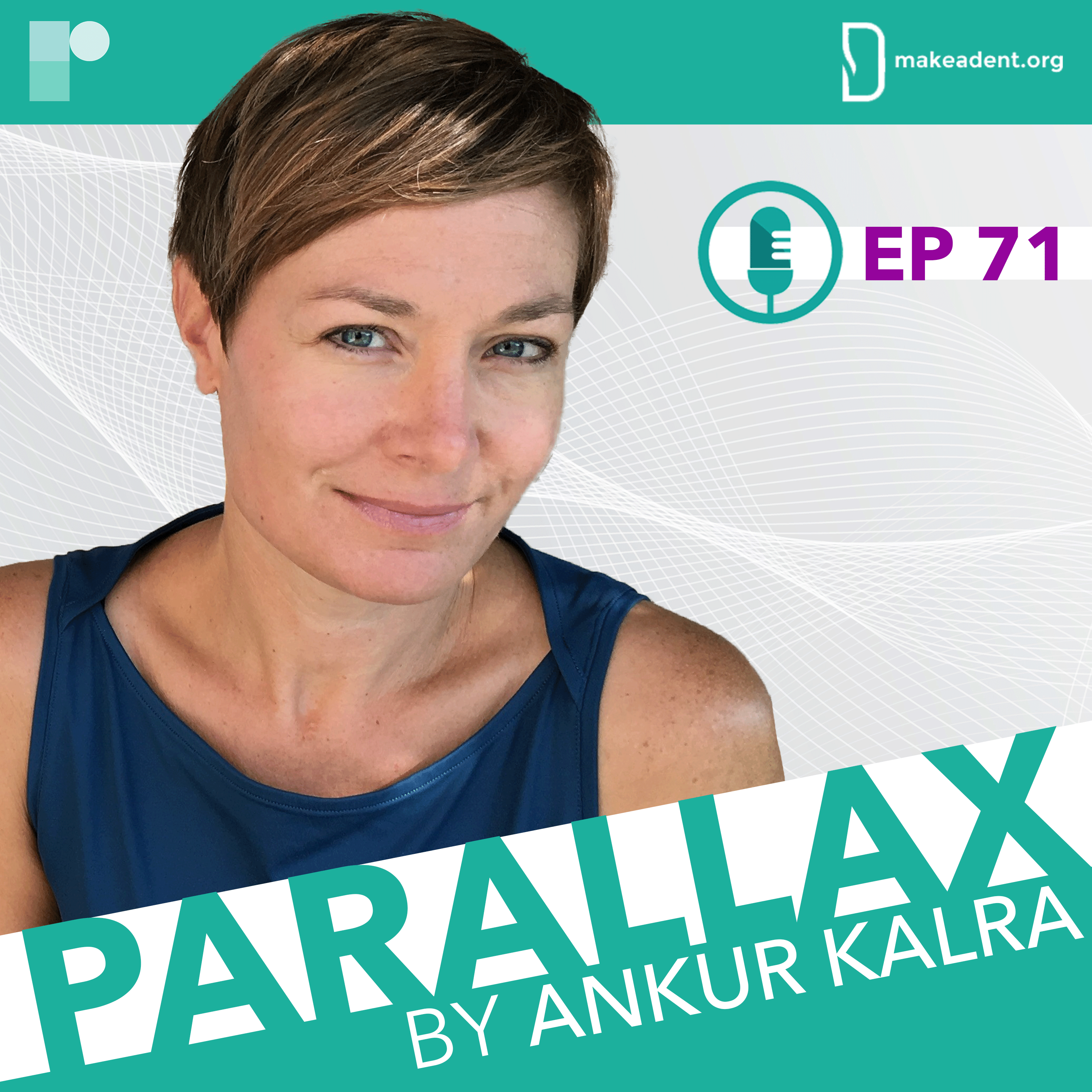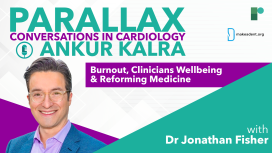
In 1999, when Shelley Wood started her career in medical journalism, there were only a few online resources. The main function of reporting on medical news was to make information accessible. Two decades later there is an abundant number of sources covering cardiology news, but TCTMD, home of Ms Wood, stands out with its “lively, thought-provoking, and rigorously objective journalism".1
This week’s guest on Parallax is Shelley Wood, Managing Editor of TCTMD, Editorial Director at CRF and 2022 recipient of the WomenHeart’s Wenger Award for Excellence in Media.
In this engaging episode, Ankur asks Shelley about her journey to medical journalism from theheart.org to TCTMD. Shelley recalls the early days of online news and shares her thoughts on what makes a content stand out in 2022. We learn more about the editorial decisions that go into leading one of the most trusted cardiology news services. Shelley, author of a bestselling novel, talks about how she balances her journalistic work with her creative writing.
How does Shelley Wood think about cardiology journalism today? What makes content good? What are Shelley’s plans as an editor and as a writer?
1. www.crf.org/crf/news-and-events…ditorial-director-2
Questions and comments can be sent to “podcast@radciffe-group.com” and may be answered by Ankur in the next episode. Guest, @ShelleyWood2 hosted by @AnkurKalraMD.
Produced by @RadcliffeCARDIO.



Parallax’s guest this week is Dr Eric David Adler, Medical director of heart transplant and mechanical circulatory support at UC San Diego Health.

How did Dr Gragossian receive her diagnosis? How does she feel about her new reality? What drives her? What is her message to our listeners?

Just after 9/11, Heval, the 18-year-old Syrian Kurdish refugee found a job as a dishwasher. At this point, he was the sole provider of his family. The pressure that comes from being poor did not leave him for many years. Today, he is firm believer in giving back to underserved communities by spreading awareness within the medical community. As he says, well-meaning people of privilege are sometimes afraid to act. What we need is more people to bridge the gap and find ways to help each other.

What drives Dr Nishtha Sodhi? What were the formative moments of Dr Sodhi’s career? What are the new frontiers of cardiology?






